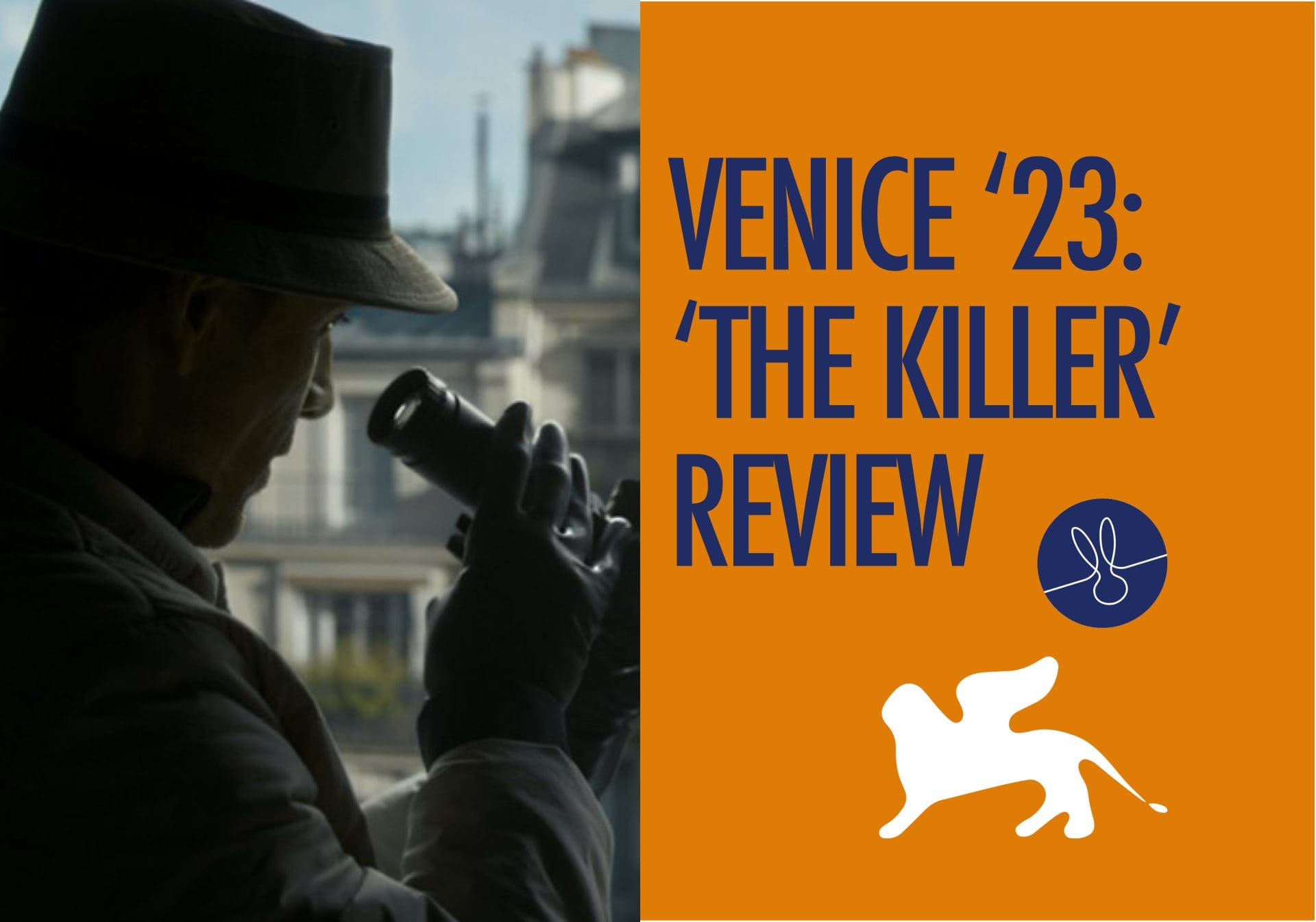
*Mild spoilers ahead*
The killer is waiting. And when it comes to the profession of killing, he notes, to himself and the audience, waiting is a part of the game— if you’re not someone who can handle doing nothing for hours on end, then being an assassin is probably not for you. So what does a killer do with boredom? Staking out in an abandoned floor of a high-rise, he throws on a Smith’s track as he assembles his sniper, or indulges in a healthy hour of yoga while he waits for his target to appear in the window of the luxury apartment complex across the street. His plan is airtight, his calculations relentlessly methodical, but one thing the seasoned killer doesn’t expect, though, is that he might miss his shot.
But that’s exactly what happens to Michael Fassbender’s unnamed (or, many-named) contract murderer in David Fincher’s aptly titled The Killer. By this point, our killer in question has just spent a good fifteen minutes explaining to the audience just how he got to be so good at what he does—the key, he claims, is to reject all empathy—and so, when his bullet tears through a high-class escort instead of the rich entrepreneur it was intended for, you can’t help but feel a little embarrassed for him.
He soon discovers the cost of the failed hit when he returns to his Dominican home to find his house trashed and his girlfriend Magdala beaten to within an inch of her life—they wanted him, and they found her. Of course, this is a slight that won’t stand, and he sets out on a globetrotting warpath to settle the score with his old bosses. It’s an evergreen elevator pitch if there ever was one. Add David Fincher into the mix and on paper you’ve got an instant classic. It’s especially disheartening to report, then, that The Killer swings big and lands with an underwhelming thud miles short of its fantastic premise.
It’s not to say that The Killer has nothing to offer—this is a Fincher film after all, and you can trust that you’ll find your fair share of tension and thrills within the film’s two hour runtime. A particular standout is the film’s action centrepiece: a brutal dance through kitchens, bedrooms and bathrooms that sees Fassbender and his hulking target throwing each other into glass tables and desperately using anything and everything they can find around the house as a murder weapon. It’s beautifully shot, and the fantastic sound design ensures you feel every painful blow as if the two were taking chunks out of you as well. It’s the one and only action scene in the movie, but Fincher makes it count.
It’s also enjoyable for a time listening to the assassin performing his mental wax-on-wax-offs, with a considerable amount of runtime spent listening in on his inner monologue. He muses lyrically on the nature of his job and the nature of man while tucking into a Mcburger (with the top bun missing, perhaps the single most deranged act in this movie). He meditates on the difference between cynicism and scepticism, and imagines an episode of storage wars where they accidentally stumble onto his gun-stashed murder-unit. This is a man, we keep being told, who lives by a carefully ironed personal philosophy.

But after a while you start to get the feeling that Fincher isn’t prepared to offer enough original philosophical probing to justify the audience spending so much time in Fassbender’s head. For a filmmaker who usually has quite a lot to say, there’s not much of anything substantial in our unnamed protagonist to warrant deeper intellectual curiosity. As the killer confronts the various thugs and bosses who were involved in the attack on Magdala, civilians also fall into his crosshairs: an office secretary, a taxi driver, his first week on the job. He weans all the information he can from them before dispatching them without a thought. There’s intrigue in the idea that the killer is, when all is said and done, exactly the unfeeling sociopath he’s been saying he is. Existential psychos can make for prime character studies. It’s the reason we love Hannibal Lecter and Anton Chigurh, and who understands better than the man who brought Fight Club’s Tyler Durden, Seven’s John Doe, and Gone Girl’s Amy Dunne to the screen? But unlike Fincher’s previous outings, the titular killer here doesn’t seem to have the charisma, insight, or depth of character to carry this premise to a satisfying end.
Check out more of our Venice ’23 coverage here!





